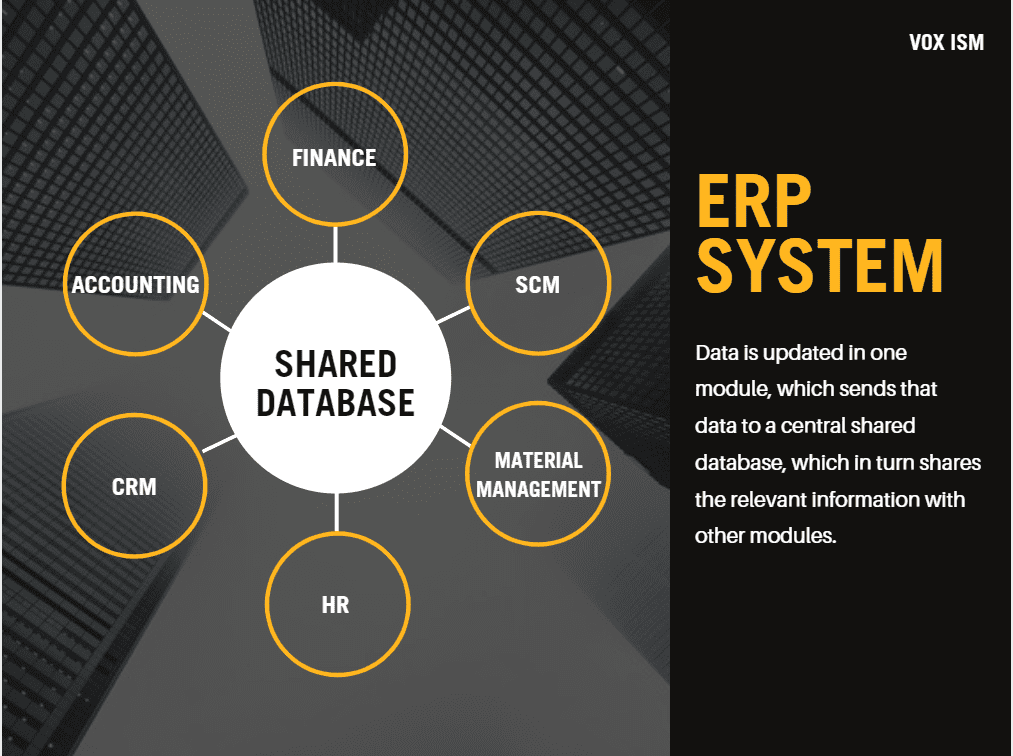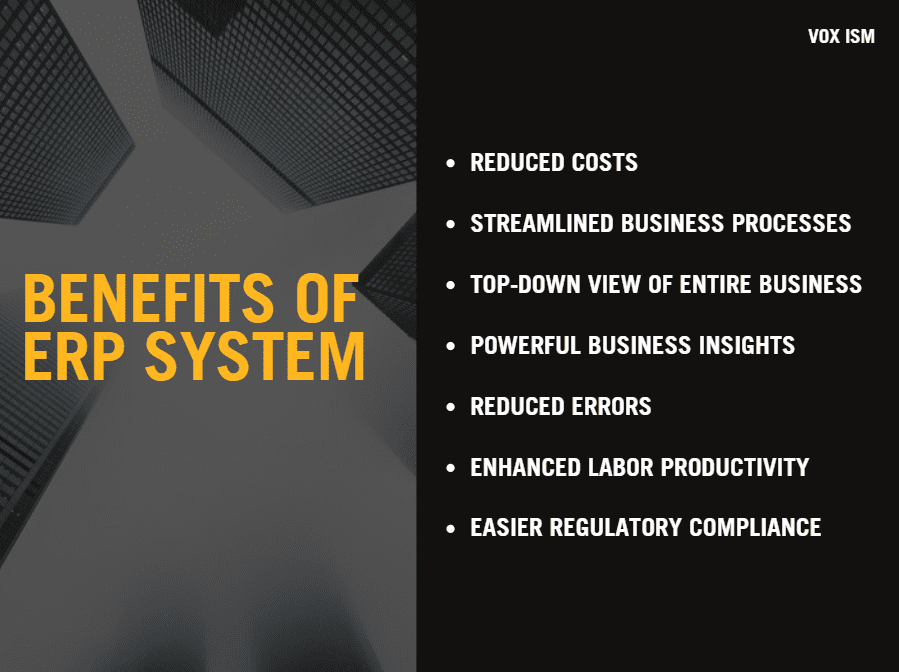What is an ERP System?
ERP stands for enterprise resource planning (ERP). It’s a business process management software that manages and integrates a company’s financials, operations, supply chain, manufacturing, reporting and human resource activities.
An ERP system includes software components, also called modules, that focus on quintessential business areas such as HR, finance and accounting, production management, materials management, customer relationship management (CRM), and supply chain management. Companies choose which core modules they want to use based on which are most significant related to their particular business requirements.
ERP System Vs Stand-Alone Targeted Software
ERP System has a central database from which the multiple software modules obtain information. This means that companies using ERP system are saved from making double entries to update information because the system shares the data, in turn enabling higher accuracy and collaboration between the company’s departments. ERP system also allows each department to see what the other departments are doing vividly. The result is that accounting and HR can easily collaborate with sales and customer relationships.
Here is a simplified look at how an ERP System works:

ERP Implementation & Capabilities:
ERP implementation options include on-premises, cloud and hybrid (mix of on-premises and hybrid). Although ERP system has historically been affiliated with expensive, inflexible, end-to-end implementations, the new cloud versions enable simpler deployments and offer great flexibility which SMBs are taking advantage of in greater numbers.
New ERP systems also offer next-generation capabilities, such as Artificial Intelligence, IoT and advanced analytics, to promote digital transformation. These new advancements in ERP technology can put your business ahead of the competition. Not only they help you enhance employee performance, but also give opportunities for greater customer engagement.

When to switch to an ERP System?
Companies turn to an ERP system when they outgrow spreadsheets and diverse, often siloed traditional software systems and need the unifying capabilities of an ERP system to enable growth.
For those of you who need a bit of understanding on when to replace your outdated system, read our article 5 Signs It’s Time to Change Your ERP System.
Discover What Modern ERP Can Do for Your Business
Now that you’ve got a good understanding of what is an ERP system, discover the ways that Microsoft Dynamics 365 Business Central brings the best of what enterprise resource planning has to offer to your business.
Join our industry experts at our exclusive event on February 20 from 1:30 PM till 3:00 PM at Microsoft Canada HQ in Mississauga.
Click here for complete event agenda.
Blog post by Neetu Jain – Marketing Coordinator at Vox ISM
